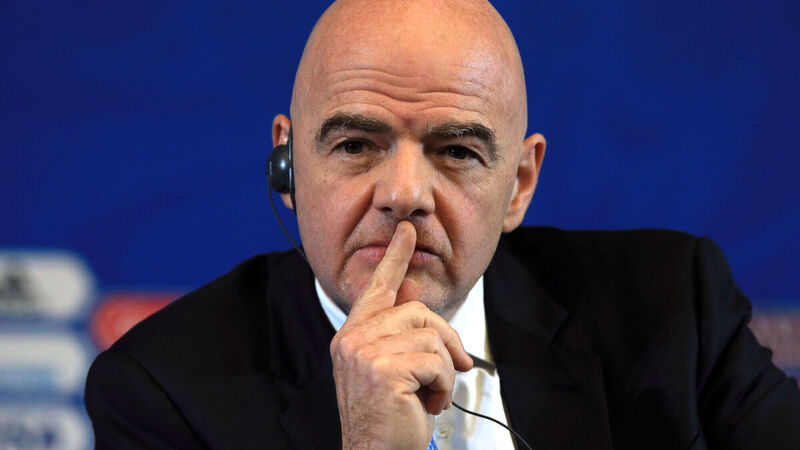John Fallon: FAI will eye push for biennial World Cup

Gianni Infantino: Claims majority of countries in favour of biennial World Cup.
Try from €1.50 / week
SUBSCRIBE
Gianni Infantino: Claims majority of countries in favour of biennial World Cup.
For a man whose ability to conveniently miss sight of events was notorious, Arsene Wenger is crystal clear in his crusade to see the World Cup staged every two years.
Fifa’s chief of global football development is the friendly face of the campaign to shorten the interval of the greatest show on earth, even prepared to divide and conquer by citing the “modern guy” as supportive of the switch to biennial tournaments for men and women.
Already a subscriber? Sign in
You have reached your article limit.
Annual €130 €80
Best value
Monthly €12€6 / month
Introductory offers for new customers. Annual billed once for first year. Renews at €130. Monthly initial discount (first 3 months) billed monthly, then €12 a month. Ts&Cs apply.
Newsletter
Latest news from the world of sport, along with the best in opinion from our outstanding team of sports writers. and reporters
Newsletter
Latest news from the world of sport, along with the best in opinion from our outstanding team of sports writers. and reporters
Thursday, February 12, 2026 - 6:00 PM
Thursday, February 12, 2026 - 10:00 PM
Thursday, February 12, 2026 - 10:00 PM

Select your favourite newsletters and get the best of Irish Examiner delivered to your inbox
© Examiner Echo Group Limited